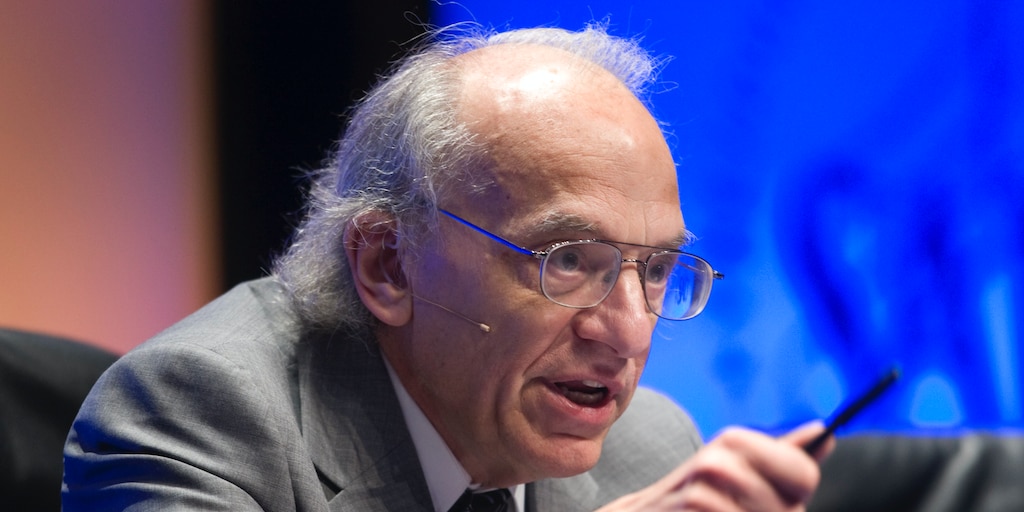 REUTERS/Steve Marcus
REUTERS/Steve Marcus
- The bond market’s four-decade bull run will be crushed under coronavirus stimulus and rising inflation, Wharton finance professor Jeremy Siegel told CNBC on Tuesday.
- Treasury notes and corporate bonds stabilized through April on the back of Federal Reserve relief measures, but an uptick in market liquidity will lead to bondholders suffering, Siegel warned.
- The professor also sees inflation rates “rising continuously over the next several years.” Stronger inflation eats away at a bond’s face value.
- Visit the Business Insider homepage for more stories.
A four-decade bull market for bonds is poised to end in the wake of the coronavirus and counteracting stimulus measures, Wharton finance professor Jeremy Siegel said Tuesday.
After a dive through early March that pushed the Treasury yield curve below 1%, US notes have stabilized while corporate bonds surged through April. The Federal Reserve’s March 23 announcement that it would begin buying corporate debt alleviated credit-health stresses and formed a direct support for investors mulling debt markets.
Though the central bank “virtually promised” rates would remain low for a prolonged period, a pickup in inflation will quash the bond market’s winning streak, Siegel told CNBC’s “Trading Nation.”
“Forty years of a bull market in bonds. It’s really hard to turn your head around and say ‘could this be a turning point?’ But I think history will say yes,” he said. “I see rates rising continuously over the next several years.”
Rising inflation weakens bond values by eating away at the asset’s face value. Longer-maturity bonds are particularly vulnerable to a steady rise in inflation.
Bond trading volumes soared in the wake of the Fed’s stimulus announcement, adding liquidity to a recently stagnant market. While the relief measures helped avoid a complete meltdown, that “tremendous buildup of liquidity” contributed to the bond market’s low point, Siegel said.
“History has shown that somewhere this liquidity has to come out, and we’re not going to get a free lunch out of this,” he said. “I think ultimately, it’s going to be the bondholder that’s going to suffer.”
Inflation will likely rebound in 2021 after years of sitting below the Fed’s 2% target, the professor added. Once prices tick higher and the economy bounces back from its virus-induced lows, bond investors “are going to be paying for the battle” with diminished purchasing power, Siegel warned.
The 10-year Treasury bond closed at 0.658% on Tuesday, down 66% year-to-date.
Now read more markets coverage from Markets Insider and Business Insider:













